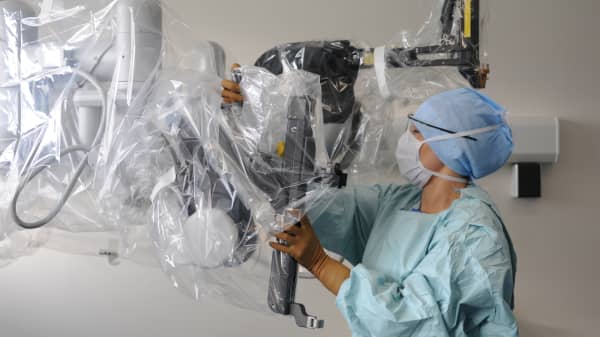Thirteen years ago Intuitive Surgical's da Vinci robot was hailed as a revolution in the operating room, triggering a hot IPO and an even hotter stock. At its peak, the stock traded at nearly $600, versus around $500 now.
But with first quarter earnings reported Thursday, critics were scrutinizing the numbers for any signs of weakness.
First quarter revenue, reported after Thursday's market close, beat on the top and bottom lines, but there was a hitch: Procedure growth of 18 percent trailed analyst expectations of around 21 percent.
Procedure growth is a critical metric—one closely watched by investors looking for any sign that the mounting controversy and legal issues over injuries and deaths allegedly related to da Vinci procedures are affecting the company's growth.
Sales growth in recent quarters has slowed, but at 23 percent in each of the last two quarters is robust by most standards. Driving gains in recent quarters, in part, has been increasing use of the da Vinci for hysterectomies and other gynecological procedures.
"We are pleased with our first quarter revenue and earnings growth. Despite a concerted effort by vocal critics of robotic surgery, support remains strong among patients, surgeons and hospitals," CEO Gary Guthart said in the company's earnings release. "Da Vinci Surgery has clinically proven benefits in offering a minimally invasive option to a broader group of patients than traditional technologies."





